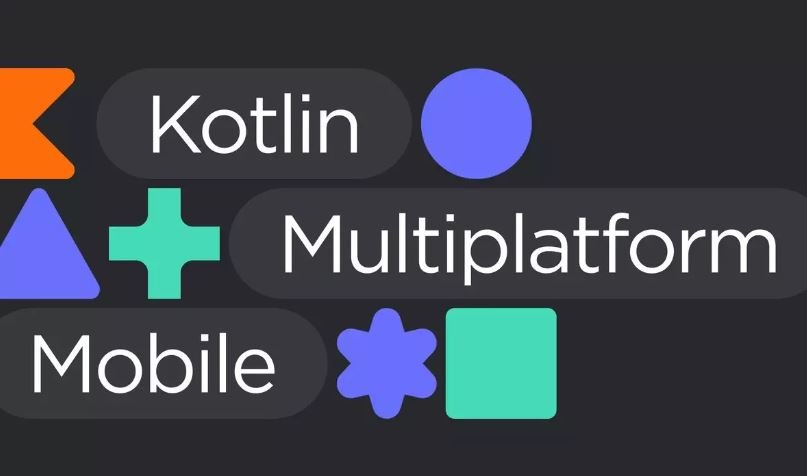In the rapidly evolving landscape of mobile app development, the demand for efficient and effective cross-platform solutions is higher than ever. Among the many technologies vying for developers’ attention, Kotlin Multiplatform stands out as a game-changer. By enabling developers to write shared code for multiple platforms, Kotlin Multiplatform offers a promising solution to the perennial challenges of cross-platform development. This article explores how Kotlin Multiplatform is revolutionizing the industry, providing insights into its benefits, and why it’s becoming the go-to choice for many Kotlin app development companies and cross platform app development companies.
The Evolution of Cross-Platform Development
Cross-platform development has always been a double-edged sword. On one hand, it promises to reduce development time and costs by allowing a single codebase to run on multiple platforms. On the other hand, it often comes with trade-offs in performance and user experience. Traditional cross-platform tools like Xamarin, React Native, and Flutter have made significant strides, but they often require developers to compromise on native capabilities or performance.
Kotlin Multiplatform aims to bridge this gap by offering a more flexible and powerful solution. Unlike other cross-platform frameworks that rely on a single codebase for UI and business logic, Kotlin Multiplatform allows developers to share only the business logic and write platform-specific code for the UI. This approach not only ensures that the app feels native on each platform but also leverages the strengths of Kotlin as a programming language.
Key Advantages of Kotlin Multiplatform
- Code Reusability: One of the primary benefits of Kotlin Multiplatform is the ability to write shared code that can be used across multiple platforms. This significantly reduces duplication of effort and speeds up the development process. For example, business logic, networking, and data storage can be written once and shared between Android, iOS, web, and even desktop applications.
- Native Performance: By allowing developers to write platform-specific code for the UI and other platform-specific functionalities, Kotlin Multiplatform ensures that applications deliver native performance. This is a significant advantage over other cross-platform solutions that might suffer from performance bottlenecks due to their abstraction layers.
- Interoperability: Kotlin is fully interoperable with Java, which means that existing Java code can be used seamlessly within a Kotlin project. This interoperability extends to Kotlin Multiplatform, allowing developers to leverage existing libraries and tools without significant rewrites.
- Flexibility: Kotlin Multiplatform offers unparalleled flexibility by letting developers decide how much code to share across platforms. This granular control means that developers can optimize their apps for performance and user experience without being constrained by the limitations of a single codebase.
- Strong Ecosystem: Backed by JetBrains, the creators of Kotlin, and supported by a growing community of developers, Kotlin Multiplatform benefits from a robust ecosystem of tools, libraries, and resources. This support makes it easier for developers to adopt and integrate Kotlin Multiplatform into their projects.
Real-World Applications and Success Stories
Several high-profile companies have already embraced Kotlin Multiplatform for their cross-platform needs. For instance, companies like Netflix, Philips, and VMWare have reported significant improvements in development efficiency and app performance after adopting Kotlin Multiplatform. These success stories highlight the potential of Kotlin Multiplatform to transform the way cross-platform apps are developed.
For example, Netflix uses Kotlin Multiplatform to share code between their Android and iOS applications. By doing so, they have streamlined their development process and reduced the time required to implement new features across both platforms. Similarly, Philips has leveraged Kotlin Multiplatform to develop healthcare applications that require high performance and reliability.
The Role of Kotlin App Development Companies
With the growing popularity of Kotlin Multiplatform, the role of specialized Kotlin app development companies has become more prominent. These companies possess the expertise and experience needed to harness the full potential of Kotlin Multiplatform, delivering high-quality cross-platform applications that meet the demands of modern users.
Kotlin app development companies are adept at navigating the complexities of shared codebases and platform-specific requirements. Their proficiency in Kotlin and deep understanding of platform-specific nuances enable them to create apps that offer a seamless user experience across multiple platforms. By leveraging Kotlin Multiplatform, these companies can deliver cost-effective solutions without compromising on performance or quality.
The Impact on Cross-Platform App Development Companies
The advent of Kotlin Multiplatform is also reshaping the strategies of cross platform app development companies. Traditionally, these companies relied on frameworks like React Native or Flutter to build cross-platform apps. However, the flexibility and native performance offered by Kotlin Multiplatform are compelling many of them to reconsider their approach.
By incorporating Kotlin Multiplatform into their toolset, cross platform app development companies can offer their clients more versatile and efficient solutions. This shift not only enhances the quality of the apps they develop but also opens up new opportunities for innovation and growth. As more companies recognize the advantages of Kotlin Multiplatform, its adoption is likely to accelerate, further solidifying its position in the cross-platform development landscape.
Conclusion
Kotlin Multiplatform is undeniably revolutionizing the field of cross-platform app development. Its unique approach of sharing business logic while allowing platform-specific code for the UI ensures that developers can create high-performance, native-feeling apps without duplicating effort. As Kotlin app development companies and cross platform app development companies continue to embrace this technology, the benefits of faster development cycles, cost savings, and superior user experiences become increasingly evident.
In an industry where efficiency and user satisfaction are paramount, Kotlin Multiplatform stands out as a transformative solution. Its growing adoption and the success stories of major companies underscore its potential to redefine the future of cross-platform development. For businesses and developers looking to stay ahead of the curve, Kotlin Multiplatform offers a compelling path forward, promising to deliver on the elusive goal of truly effective cross-platform app development.





